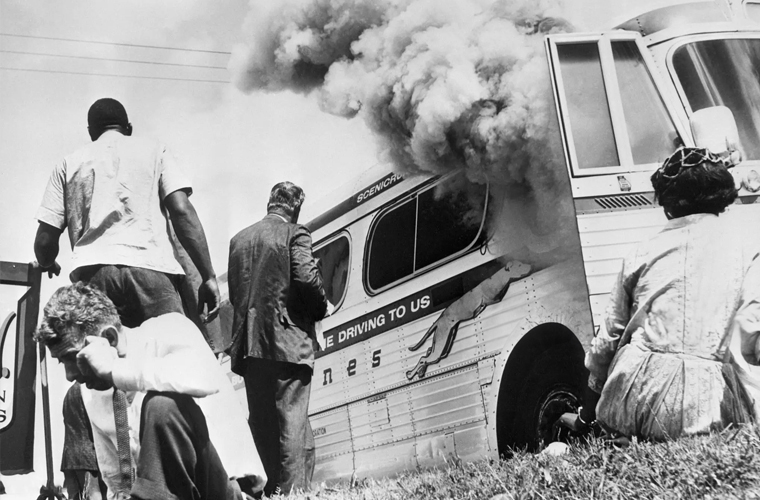The Freedom Rides were a series of civil rights protests that took place in the United States during the 1960s. The rides were organized to challenge segregation on interstate buses and in bus terminals, and they played a pivotal role in the civil rights movement. The Freedom Rides were inspired by the Supreme Court’s decision in Boynton v. Virginia, which ruled that segregation in interstate transportation was unconstitutional. Despite this ruling, many facilities in the South continued to enforce segregation, prompting activists to take action.
The rides were organized by the Congress of Racial Equality (CORE) and the Student Nonviolent Coordinating Committee (SNCC), and they involved groups of black and white activists traveling together on interstate buses through the South. The goal was to test the enforcement of the Boynton v. Virginia decision and to challenge segregation laws. The first Freedom Ride took place on May 4, 1961, when a group of 13 activists, including seven black and six white riders, boarded two buses in Washington, D.C., bound for the South. As they traveled through Virginia, North Carolina, and other Southern states, they encountered violent resistance from segregationists, including beatings and arrests.
The violence and media attention surrounding the Freedom Rides brought national and international scrutiny to the issue of segregation in the United States. The rides also inspired other activists to join the cause, leading to an expansion of the movement. Despite the violence and opposition they faced, the Freedom Riders remained committed to their cause. Their determination and courage brought significant attention to the issue of segregation and helped to advance the civil rights movement.
In response to the Freedom Rides, the Kennedy administration took action to enforce desegregation laws and protect the riders. The Interstate Commerce Commission issued regulations prohibiting segregation in interstate travel, and the Department of Justice filed lawsuits against Southern states that were not enforcing desegregation laws. The impact of the Freedom Rides was significant. They brought attention to the injustice of segregation and helped to mobilize public support for civil rights legislation. In 1964, Congress passed the Civil Rights Act, which outlawed segregation in public accommodations and banned discrimination based on race, color, religion, sex, or national origin.
The Freedom Rides were a powerful example of nonviolent protest and civil disobedience. They demonstrated the courage and determination of activists who were willing to risk their lives to challenge injustice. The legacy of the Freedom Rides continues to inspire those who work for equality and justice.
In conclusion, the Freedom Rides were a pivotal moment in the civil rights movement. They brought attention to the issue of segregation and helped to bring about significant changes in U.S. law. The bravery and commitment of the Freedom Riders serve as an enduring example of the power of nonviolent resistance in the face of injustice.


